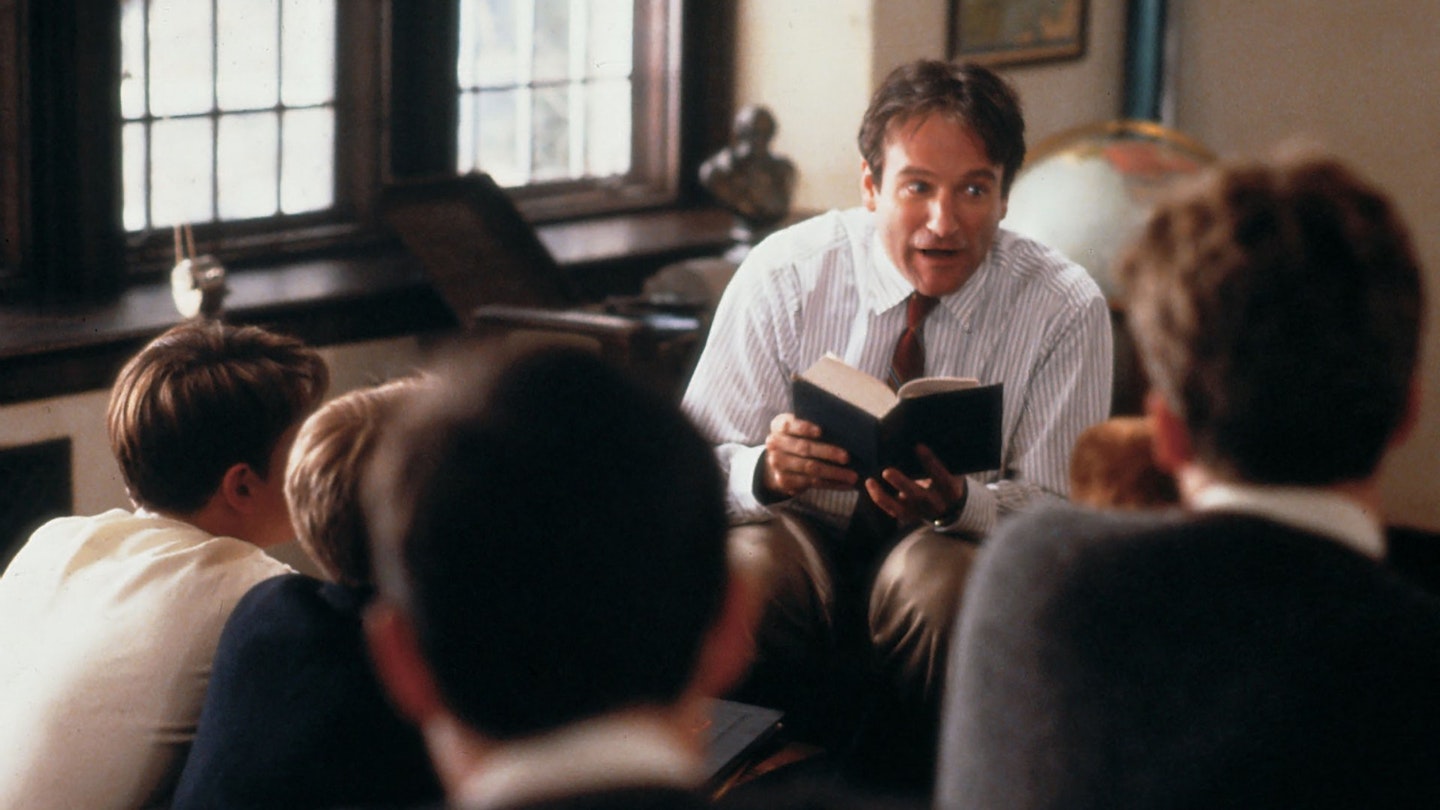The success at the US box office of Peter Weir's evocative drama about youthful dreams and self-discovery is a tribute to the pulling power of Robin Williams since it is unusual to see a 'quality film' rubbing receipts with comic book heroes and horror fiends.
Those attracted by his participation will not be disappointed, although Williams is in fact not the busiest character in the role of charismatic English teacher John Keating. As the kind of teacher everyone wishes they'd had, inspiring his students with passion and joy, he is the catalyst for the actions of the teenagers he has enthralled. Much of the story's telling devolves on a cast of newcomers (Robert Sean Leonard, Ethan Hawke, Gale Hansen and Josh Charles particularly), acquitting themselves very well as the classmates in a strictly traditional New England private school in 1959 who are moved to dream and to dare by Keating's encouragement.
Williams makes of Keating an immensely sympathetic presence that suffuses the film even when he is off-screen. Renowned for his improvisational flights, his performance here is controlled - warm rather than wacky, stirring rather than wild. His facility at letting rip is used judiciously to marvellous effect in classroom scenes in which he soars: exhorting the boys to tear up their texts, circling a shy student to squeeze a poetic outburst from the startled boy, impersonating John Wayne playing Macbeth.
Spellbound by Keating and on fire to emulate him, a group of the boys form the Dead Poets Society in imitation of a secret club led by their hero in his own schooldays at the academy. The boys' clandestine nocturnal meetings in a cave are innocent enough adventures during which they spout poetry and tackle deep and meaningful matters like girls, booze and life.
Unfortunately the plot takes a bumpy diversion into the anticipated clash with authority, concentrating on the trouble between one of Keating's most promising boys and his ambitious, insensitive father. A tragedy - semaphored way before it finally occurs - leads to hysterical recriminations and reprisals that cruelly chill the film's previously celebratory tone, revived at the last with a corny but spirit-lifting end.
As one would expect from the director of such films as A Picnic At Hanging Rock, Gallipoli and Witness, Peter Weir, accompanied by his regular director of photography, John Seale, distinguishes himself by creating a strong sense of the time, place and people while imbuing even simple acts with beauty and mystery. A long shot of the boys walking in the dark to their secret place, for example, is a magical image of their excitement, fear and high spirits. This film radiates intelligence, humanity and warmth through many such small moments.
